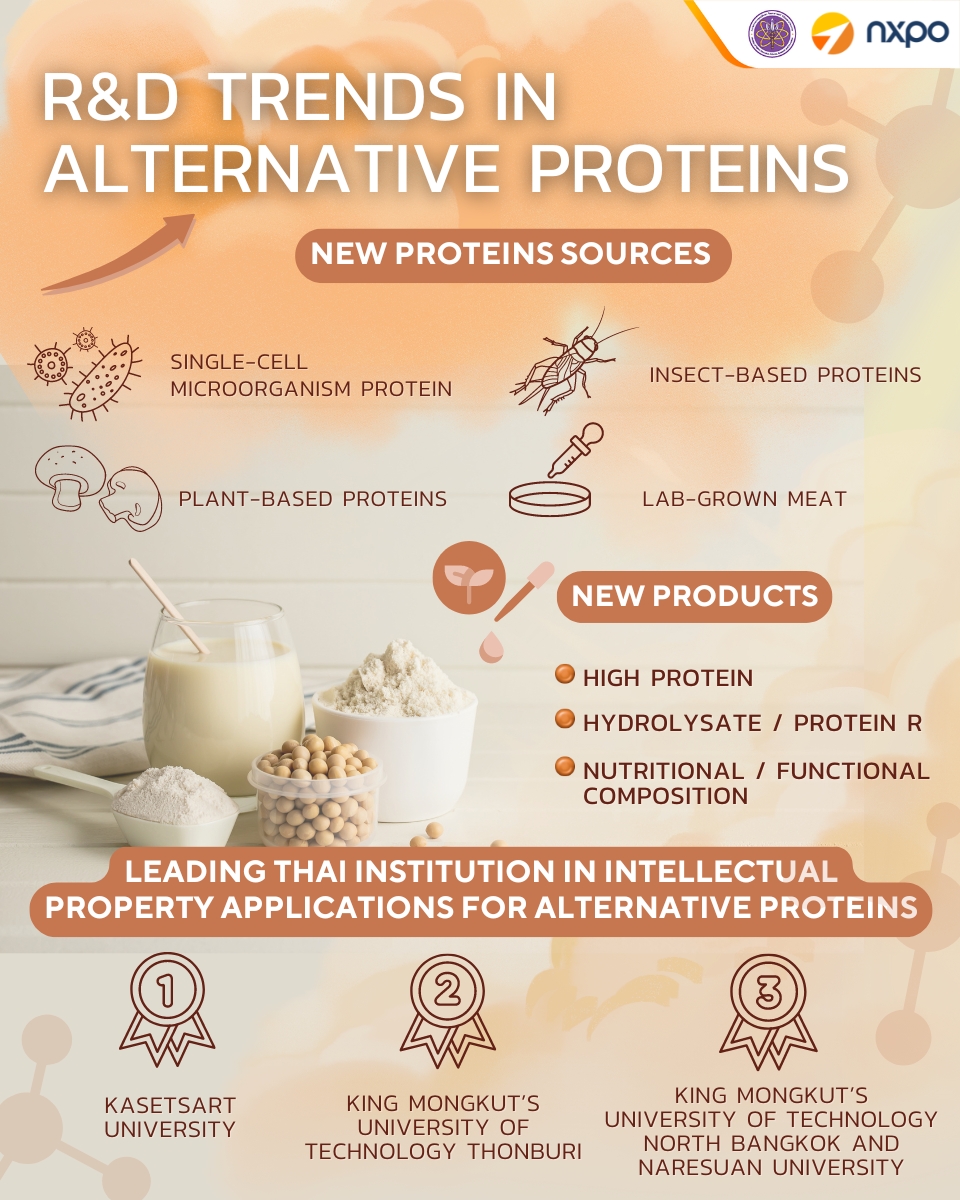Alternative proteins have garnered significant global attention as reflected in the surge of technological advancements in their production over the past decade. This trend encompasses the discovery of novel sources and the development of products through advanced biotechnology. Worldwide, an increase in patent filings has also been observed, led by global players such as Abbott, Cargill, and Nestlé. Key examples of alternative proteins include single-cell/microorganism proteins, insect-based proteins, plant-based proteins, and lab-grown meat. Emerging trends in product development include high protein product, protein hydrolysate – a processed form of protein broken down into amino acids and peptides for rapid absorption, and nutritional/functional composition.
In Thailand, research and development in alternative protein production over the past decade have been relatively modest, primarily focusing on protein hydrolysate. As a result, the number of intellectual properties in alternative protein technology is limited. Petty patents are preferred over full patents due to their simpler and faster processes. The leading institutions in Thailand for intellectual property filings include Kasetsart University, King Mongkut’s University of Technology Thonburi, King Mongkut’s University of Technology North Bangkok, and Naresuan University.
Research in Thailand primarily explores alternative protein sources such as soybean, rice bran, algae, and rice. Only one patent on single-cell protein derived from microorganisms using advanced biotechnology has been filed by a company. Additionally, research into product development in Thailand is mainly centered on protein hydrolysate. There is one patent filed by a company on plant-based meat.








